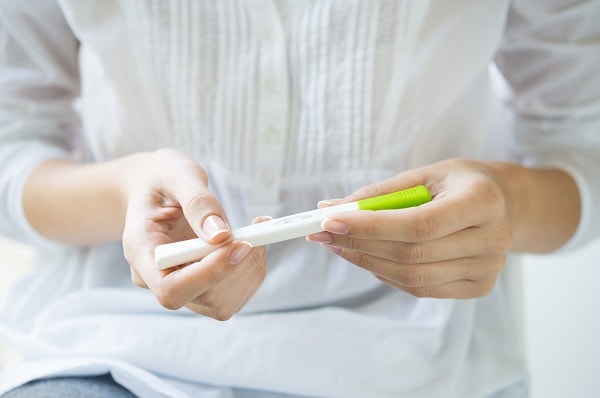
Some women find it easy to get pregnant, while others need more time. This is normal since different people have different bodies, but it can be frustrating if you want to have a baby now but can’t seem to conceive ASAP.
Fortunately, there are several things you can do to increase your chances of conceiving, such as the following:
Understand your menstrual cycle
If you’re not yet intimately familiar with your menstrual cycle, it’s time to study it now. Being fully aware of your cycle helps you identify the days when you’re most fertile and most likely to conceive.
According to experts, it’s best to have sex when you’re ovulating. But how do you know that you are?
One of the best things you can do is to count. Take note of the first day of your last period, also known as the last menstrual period or LMP. If you have a regular 28-day cycle, you’ll most likely start ovulating 14 days after your LMP. But, if you have a shorter or longer cycle, you’ll want to start trying nine days after your LMP then continue until you get a positive pregnancy test.
You also need to know the signs of ovulation and watch out for them. Your cervical mucus, which usually has a thick consistency, turns thin and slippery whenever you’re ovulating. You might also feel a twinge of pain in your left side or right side, although this isn’t something that all women experience.
Get preconception checkups
Many couples think that they should see a doctor only when they’ve been trying to conceive but to no avail. However, this isn’t really the case; if you want to get pregnant faster and ensure you’ll have a healthy baby, you need to schedule an appointment with your doctor ASAP.
Your doctor will do a general checkup to ensure you have a clean bill of health and have no underlying medical issues that can make it difficult for you to get pregnant. She will also give you folic acid supplements and other vitamins and minerals that will support your baby’s growth in the womb.
Improve your physical and mental health
It’s natural to be stressed out when people ask you when you’re having a baby. But you shouldn’t let stress get to you — it won’t only affect your mental health, but it can also negatively affect your ovulation process. Tune out other people whenever they pressure you about starting a family, and learn healthy ways to cope with stress and develop a positive mindset.
Don’t forget to focus on your physical health, too. Your baby will fully depend on you for nourishment, so you have to make sure that your body is ready to provide what your future child needs.
Remove junk food and fast food from your diet and start eating more fruits, vegetables, lean meat, and other healthy food. Make it a habit of working out every day, but don’t go overboard — too much exercise can actually interfere with your menstrual cycle. Stick to moderate exercises like brisk walking or swimming.
Of course, if you smoke, drink, or use recreational drugs, it’s time to stop. These habits can harm your body (especially your reproductive system) and even affect the growth and development of your baby.
Ensure your partner’s sperm is healthy
It’s not just you who should be concerned about your health. To ensure you’ll successfully conceive, your partner should also take care of his body. Specifically, he has to make sure that his sperm is in good condition and that he has enough sperm count. Here are some of the things he needs to do:
- Avoid using Jacuzzis and hot tubs and wearing tight-fitting jeans and pants since these can cause sperm count to plummet.
- Avoid putting his cellphone in his jeans pocket. Studies have shown that keeping mobile devices near the testicles can result to low sperm quality.
- Cutting down on alcohol. Experts say that prolonged alcohol consumption can shrink the testes and lower testosterone levels — both of which can contribute to infertility.
Avoid the wrong sexual positions
You’ve probably heard that certain sexual positions can help you get pregnant. There’s no scientific evidence to support these claims, but there are positions that make it difficult for you to conceive.
These include those that require you to sit or stand while having sex; because of the way your body is positioned, your partner’s sperm will find it hard to travel upstream and may eventually flow out of your body due to gravity.
This leads us to the next point: no matter what sexual position you use, make sure to lie horizontally afterwards. Avoid getting up to go to the bathroom or anywhere else; instead, stay put on the bed for about 15 minutes to allow the sperm to reach your cervix without any interruption.
Final Thoughts
Taking the steps above can help increase your chances of conceiving. But don’t just stop there; if you’ve been trying for a year without any success, you’ll want to consult a specialist to know if there are any fertility problems you need to address.



I saw my period 21st of august but still I have not seen my period on the 1st of October I did a test it was negative please I don’t know what next.
Hello Olawale, you might be experiencing irregularities.
Please l don’t ovulate needs help